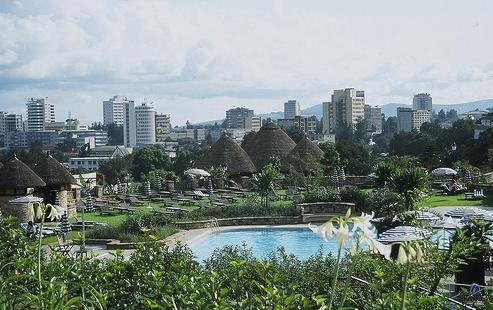

ETV




 |
| Addis Ababa, capital of Ethiopia |
Fedlu Nuredin, Addis Ababa resident, said, "The people have their own unique cultures. That includes Ethiopian hospitality. People here accept anyone equally just because they are human beings. They also sacrifice themselves for the comfort of the guest. If Ethiopia can use these all, I believe there are better things to come in the future."
Placed on Africa's highest altitude, Addis Ababa, meaning New Flower in Amharic, is one of the oldest cities in Africa dating back to 125 years ago. Tourists love the city for various reasons good food, better hotels or its adorable hospitality. It's a city that has something to offer for everyone.
Zinna Zamora, hotel manager, said, "That is a beautiful country. First of all the weather is beautiful. And it is accessible to any part of Africa and to the world itself. The people are nice as well. And the country itself it is very safe. That is actually the first thing always get as a feedback. It is because normally when you say Ethiopia they still think of the past. But when they come and see Ethiopia they find it nice and they look forward in coming back."
This once forgotten and backward city is now outshining its competitors in the region. But still, Addis has its own challenges, poor sanitation management, lack of clean water supply and bad roads.
Addis Ababa unlike other cities of the country is called by some the sanctuary of Ethiopia's nations and nationalities and their colorful cultures. The city is now presenting itself to the world testifying Africa's economic growth is real and remarkable.
 |
| Addis Ababa |
 |
| Addis Ababa |
 |
| Addis Ababa |






American researchers from the organisation Global Advocacy, One Laptop Per Child have mounted an experiment in two small Ethiopian villages to see the effect of new technology on children in remote regions of the developing world.
Helped by the Ethiopian government, they gave out tablet PCs, programmed in English and without any instructions, to every child between four and eleven years old in their target areas.
Early findings, they say, are astonishing and appear to suggest that tablets may do more for some children's education than schools or teachers. Global Advocacy's Matt Keller explained the thinking behind the experiment to the Today programme's Mike Thomson.









